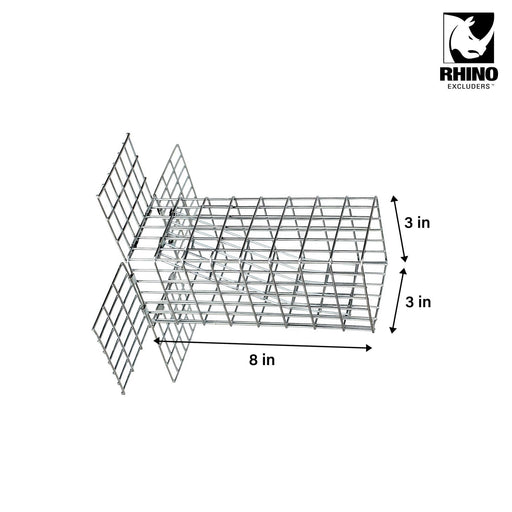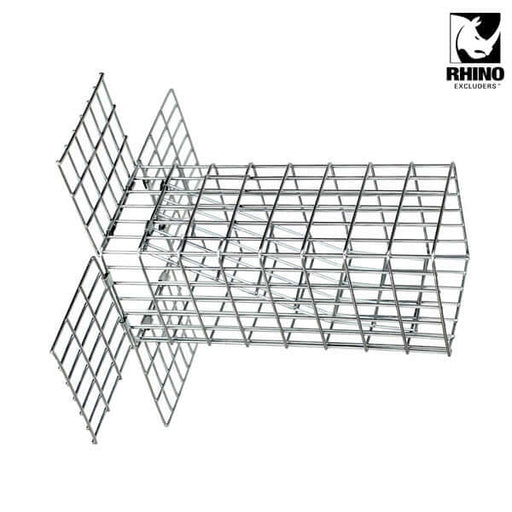
Are Raccoons Rodents?
Raccoons, with distinctive masks and dexterous front paws, are unique little animals that seem to pique intrigue in everyone. A common topic of interest is whether raccoons are rodents, or if they fall under another category entirely.
In this article, we'll compare the defining traits of rodents to those of raccoons to confirm where they sit in the animal kingdom.
What Defines a Rodent?

Raccoons – An Overview
Raccoons vs. Rodents – Clarifying the Confusion
Physical and Behavioral Differences
The distinction between raccoons and rodents lies in their physical and genetic makeup. Raccoons, members of the Procyonidae family, are larger and sturdier compared to typical rodents. Their dental structure is significantly different, with raccoons lacking the characteristic ever-growing incisors of rodents. Additionally, raccoons' front paws are remarkably versatile, capable of opening jars and unlocking gates, which sets them apart from the simpler limbs of rodents.
Why the Confusion?
The confusion often stems from some shared behaviors and habitats. Both raccoons and rodents can be found rummaging through garbage, living in urban environments, and displaying nocturnal activity.
However, these similarities are superficial. When one delves into their biological classification, lifestyle, and physical attributes, the differences become clear.

Recommended Preventive Measures
Ensuring your property is less inviting to wildlife like raccoons involves several strategic steps. First and foremost, secure your garbage cans with tight-fitting lids or consider using wildlife-proof containers. Raccoons are skilled at opening simple lids, so adding a locking mechanism can be highly effective.
Keep your yard clean and free of food scraps. Regularly pick up any fallen fruits or nuts from your garden, as these can attract raccoons. If you have a compost pile, make sure it's well-contained and possibly fenced off to prevent easy access.
Trimming overhanging branches can also reduce raccoon activity, as these branches can serve as pathways onto your roof. Raccoons are excellent climbers and may use trees to access attics or other high points of your home for nesting.
Lastly, inspect your home for potential entry points, such as broken vents, loose siding, or gaps in the foundation. Raccoons can squeeze through surprisingly small openings, so sealing these areas is crucial. Use durable materials like metal mesh or solid metal plates, as raccoons can easily tear through weaker materials.
When to Call a Professional
If raccoons or other wildlife consistently appear on your property, especially during daylight for nocturnal animals like raccoons, it's a sign to enlist an expert. Also, any aggressive behavior from wildlife, such as growling or charging, is a serious concern, potentially indicating disease or protectiveness over offspring.
Signs of disease in wildlife, like erratic behavior or disorientation, should not be ignored. These symptoms can point to serious health issues like rabies. Moreover, significant property damage caused by wildlife, such as destroyed vents or roofs, often requires expert intervention.
In these scenarios, contacting wildlife control professionals ensures safe, humane handling and prevention of future incidents!
Conclusion
In summary, while raccoons don't fall in the rodent family, they do share some similar behaviors and habitats with rodents. Although raccoons are beneficial to their ecosystems, effective management and prevention can help keep them safely separate from your home.
If you've noticed the persistent presence of raccoons in or around your home, especially during the day, don't wait to act. With high-quality, innovative products like the Rhino Excluders One Way Door, you can humanely remove nuisance pests from raccoons to bats and birds.
Rhino Excluders™ Collection
-
Original price $54.99Original price $54.99 - Original price $54.99Original price $54.99Current price $44.99$44.99 - $44.99Current price $44.99
R108 - Rhino Excluders® Raccoon One Way Door
Rhino Excluders®In stockABS Plastic body | Light weight | 10” x 8” x 1” Are you tired of dealing with persistent raccoon intrusions? Say goodbye to those frustrating encou...
View full detailsOriginal price $54.99Original price $54.99 - Original price $54.99Original price $54.99Current price $44.99$44.99 - $44.99Current price $44.99Save 18% -
Original price $32.99 - Original price $32.99Original price$32.99$32.99 - $32.99Current price $32.99
S33 - Rhino Excluders® One Way Squirrel Door
Rhino Excluders®In stockS33 Rhino Excluders® One Way Squirrel Door (for Squirrels, Chipmunks, Rats & Similar Size Rodents) 14 Gauge | 8” x 3” x 3” Introducing the S33 ...
View full detailsOriginal price $32.99 - Original price $32.99Original price$32.99$32.99 - $32.99Current price $32.99 -
Original price $64.99Original price $64.99 - Original price $64.99Original price $64.99Current price $49.99$49.99 - $49.99Current price $49.99
Rhino Excluders® PROCHUTE™ One Way Door for removal of Raccoons, Skunks, Groundhogs, Opossums
Rhino Excluders®In stockRhino Excluders® PROCHUTE™ One Way Door Durable 5mm ABS Plastic body | 11” x 9” x 7” Prochute™ Excluder is perfect for removing raccoons, skunks, o...
View full detailsOriginal price $64.99Original price $64.99 - Original price $64.99Original price $64.99Current price $49.99$49.99 - $49.99Current price $49.99Save 23% -
Original price $24.99Original price $24.99 - Original price $24.99Original price $24.99Current price $21.99$21.99 - $21.99Current price $21.99
Rhino Excluders® BIRDCHUTE™ One Way Bird Door for removal of Birds
Rhino Excluders®In stockRhino Excluders® BIRDCHUTE™ One Way Bird Door Polypropylene (PP) Plastic body | 7” x 6.5” x 6.5” Birdchute™ One Way Bird Door is perfect for removi...
View full detailsOriginal price $24.99Original price $24.99 - Original price $24.99Original price $24.99Current price $21.99$21.99 - $21.99Current price $21.99Save 12% -
Original price $24.99Original price $24.99 - Original price $24.99Original price $24.99Current price $21.99$21.99 - $21.99Current price $21.99
Rhino Excluders® BATCHUTE™ One Way Bat Door
Rhino Excluders®In stockRhino Excluders® BATCHUTE™ One Way Bat Door Polypropylene (PP) Plastic body | 7” x 6.5” x 5” BATCHUTE™ One Way Bat Door is designed to humanely rem...
View full detailsOriginal price $24.99Original price $24.99 - Original price $24.99Original price $24.99Current price $21.99$21.99 - $21.99Current price $21.99Save 12% -
Original price $34.99 - Original price $34.99Original price$34.99$34.99 - $34.99Current price $34.99
S35 Rhino Excluders® One Way Door For Squirrels, Chipmunks, Rats & Similar Size Rodents
Rhino Excluders®In stockS35 Rhino Excluders® One Way Door For Squirrels, Chipmunks, Rats & Similar Size Rodents 14 Gauge | 10” x 3.5” x 3.5” Introducing the S35 Rhino ...
View full detailsOriginal price $34.99 - Original price $34.99Original price$34.99$34.99 - $34.99Current price $34.99











